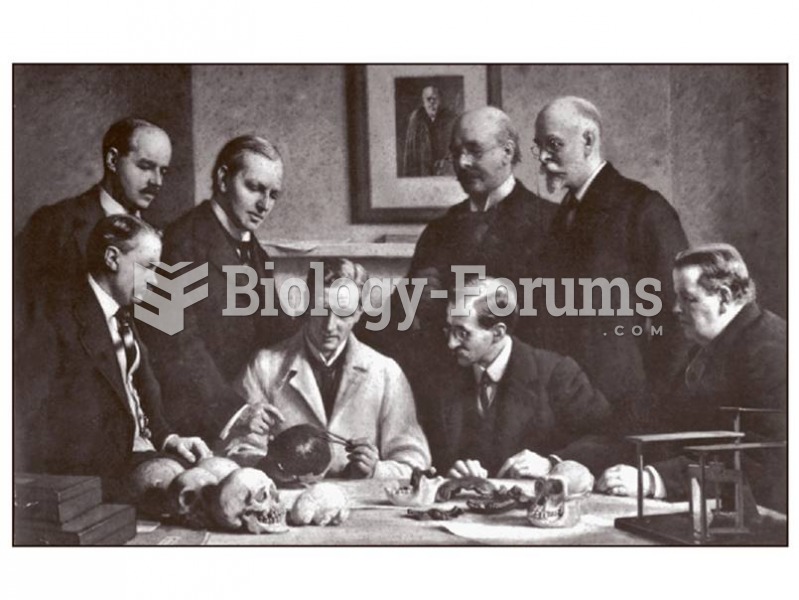|
|
|
Dogs have been used in studies to detect various cancers in human subjects. They have been trained to sniff breath samples from humans that were collected by having them breathe into special tubes. These people included 55 lung cancer patients, 31 breast cancer patients, and 83 cancer-free patients. The dogs detected 54 of the 55 lung cancer patients as having cancer, detected 28 of the 31 breast cancer patients, and gave only three false-positive results (detecting cancer in people who didn't have it).
The calories found in one piece of cherry cheesecake could light a 60-watt light bulb for 1.5 hours.
Bacteria have been found alive in a lake buried one half mile under ice in Antarctica.
Many people have small pouches in their colons that bulge outward through weak spots. Each pouch is called a diverticulum. About 10% of Americans older than age 40 years have diverticulosis, which, when the pouches become infected or inflamed, is called diverticulitis. The main cause of diverticular disease is a low-fiber diet.
Certain chemicals, after ingestion, can be converted by the body into cyanide. Most of these chemicals have been removed from the market, but some old nail polish remover, solvents, and plastics manufacturing solutions can contain these substances.
 Emanuel Leutze’s Washington Crossing the Delaware (1851) is riddled with historical inaccuracies, mo
Emanuel Leutze’s Washington Crossing the Delaware (1851) is riddled with historical inaccuracies, mo
 Temperament refers to stable differences in the emotional reactions of different children to similar ...
Temperament refers to stable differences in the emotional reactions of different children to similar ...





